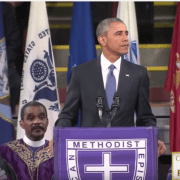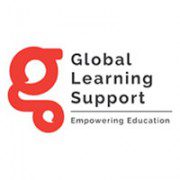The power of speech
Whatever one may think of USA President Barak Obama’s policies and performance few doubt his ability to deliver a stirring speech. In fact many would argue that his oratorical skills were an obvious driving force in his rise to power. Of course it would not be the fist time that the ability to orate has helped achieve such high station.
Leadership is much more than a good speech but a good speech certainly helps underpin leadership.
A few months ago a crazy white guy walked into a black church in South Carolina and killed nine people including the pastor. This against a background of racial tension at its highest in the USA for decades.
President Obama chose not only to attend the funeral of Reverend Climenta Pickney but also to deliver the eulogy. Obviously it presented an opportunity to try to heal but, rather more delicately, it also offered a chance to shine a light on the unfinished work of USA race relations.
It’s 37 minutes long, so most won’t get to the end. However, for students of oratory, it is well worth it. The pacing the structure, the emotion, the pathos the empathy, it’s all there. It’s not cynical to call it text-book oratory. It is obviously heartfelt. Such oratory has the power to move, emotionally, just like other art forms.
People look to their leaders to express what they are feeling, to inspire and to reassure. That is just as true in business as in politics or religion. Yet in the digitally interconnected world we increasingly lament the lack personal connection that an engaging and arousing speech can deliver.
Few, thankfully very few, circumstances will require the oratory skills of Churchill, Roosevelt or Obama but the ability to deliver a good speech can help drive business objectives or calm a situation in manner that even the most artfully constructed communiqué cannot. For any leader it is a skill worth developing.
That skill can be trained and can be supported by seasoned speech-writers. ICG has decades of experience in presentation training and speech writing for CEOs, senior managers and public figures. We can help develop and support the ability to use the spoken word as a powerful business tool.



